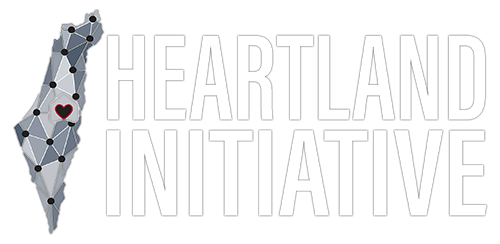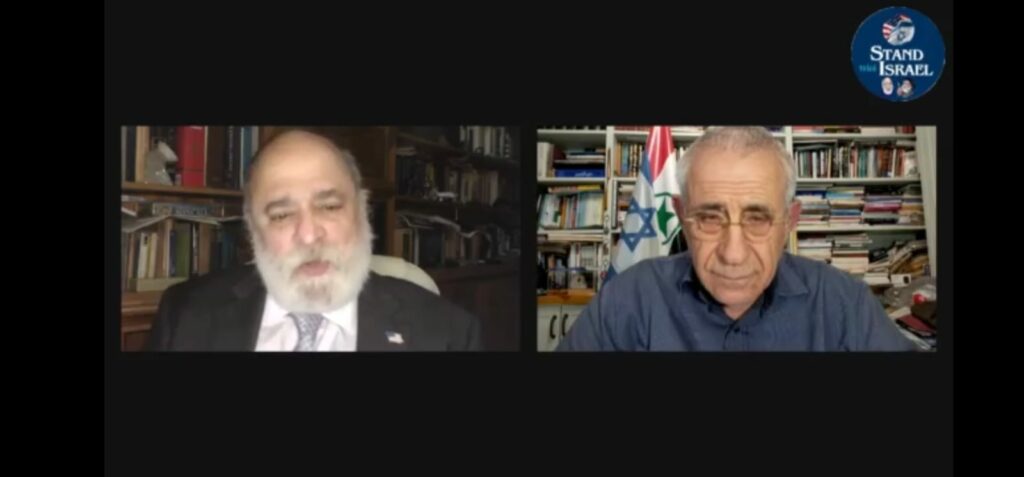Insights into the Gaza Conflict:
Perspectives from Dr. Mordechai Kedar
In a recent enlightening dialogue between Saul Montes-Bradley and Dr. Mordechai Kedar on the radio show “Yapping with Saul,” the complexities of the Gaza conflict were brought into sharp focus. Dr. Kedar, a senior advisor to the Heartland Initiative and a seasoned expert in Middle Eastern affairs, provided a detailed analysis that unravels the intricate layers of this enduring conflict.
Iran’s Strategic Ambitions in the Middle East
A central theme in Dr. Kedar’s dialogue was the covert yet significant role of Iran in the Gaza conflict. He depicted Iran as a strategic puppeteer, using groups like Hezbollah and Hamas to extend its influence across the Middle East. This strategy is a crucial part of Tehran’s broader ambitions to dominate the region, effectively turning nations into pawns in a larger geopolitical game. Dr. Kedar elaborates that Iran’s support for these groups is not just military but also ideological, as it seeks to spread its revolutionary doctrine, thereby destabilizing neighboring countries and deepening sectarian divides.
The Complex Humanitarian Landscape
The conversation also delved into the humanitarian crisis that underpins the Gaza conflict. Dr. Kedar highlighted the tragic moral dilemmas faced by Israeli defense forces as they respond to threats emanating from civilian areas. The use of human shields by groups like Hamas complicates military responses, forcing Israel to weigh the imperative of national security against potential civilian casualties. Beyond immediate violence, Dr. Kedar emphasized the broader humanitarian impact of the conflict, including deteriorating living conditions, poverty, and inadequate access to basic needs in Gaza.
Shifting Global Perspectives
In his dialogue with Saul, Dr. Kedar noted a significant shift in global perspectives regarding the Gaza conflict. Western nations, particularly the United States and Europe, are increasingly recognizing the complex nature of the threats posed by extremist groups and their state sponsors. This evolving viewpoint marks a pivotal change in the global narrative surrounding Israel and its place in the region, influencing diplomatic strategies and foreign policy decisions.
The Deep-Rooted Ideological Divide
A key point in Dr. Kedar’s analysis is the profound ideological divide that lies at the heart of the Gaza conflict. He pointed out that groups like Hamas view their struggle against Israel as part of a larger Islamic cause, fundamentally opposing any form of Israeli statehood. This extremist ideology presents one of the most significant challenges to peace efforts in the region, as it hinders dialogue and mutual understanding between communities.
Confronting the Extremism Challenge
Towards the end of their conversation, Dr. Kedar highlighted the broader challenge of confronting extremist ideologies in the region. The rigid stance of groups like Hamas, which denies Israel’s right to exist, severely impedes any progress towards peace. Dr. Kedar advocates for a comprehensive approach to tackle extremism, combining military, diplomatic, and socio-economic strategies to address the root causes of radicalization.
In Summary
The dialogue between Saul Montes-Bradley and Dr. Mordechai Kedar sheds light on the multifaceted nature of the Gaza conflict, offering a nuanced understanding of the geopolitical, humanitarian, and ideological dimensions shaping this enduring struggle. As the situation in Gaza continues to evolve, the insights provided by experts like Dr. Kedar remain crucial in navigating the complex landscape of Middle Eastern politics.


